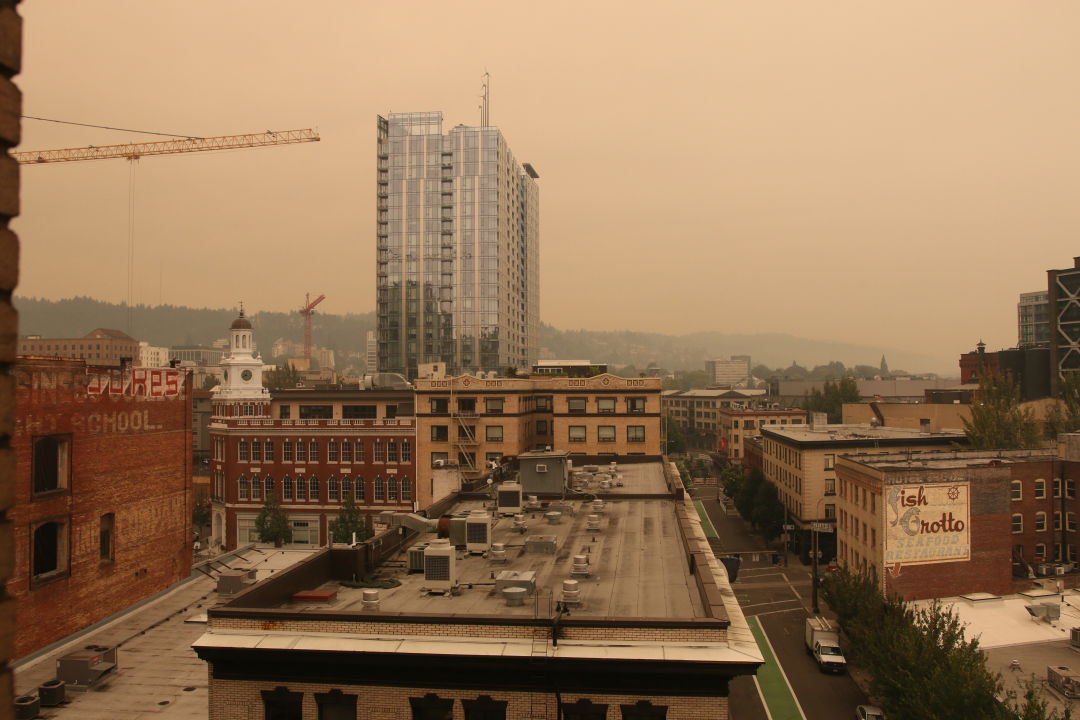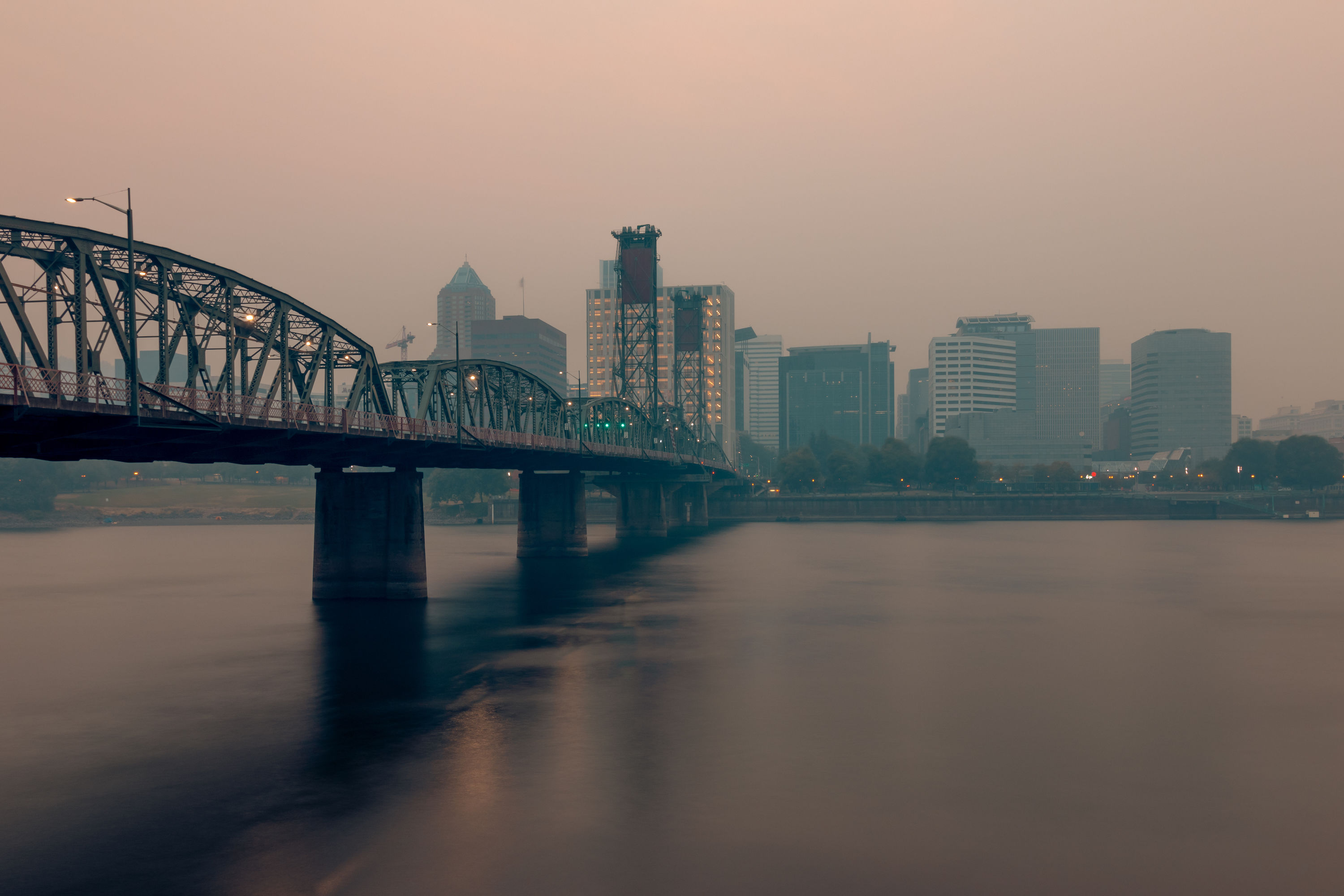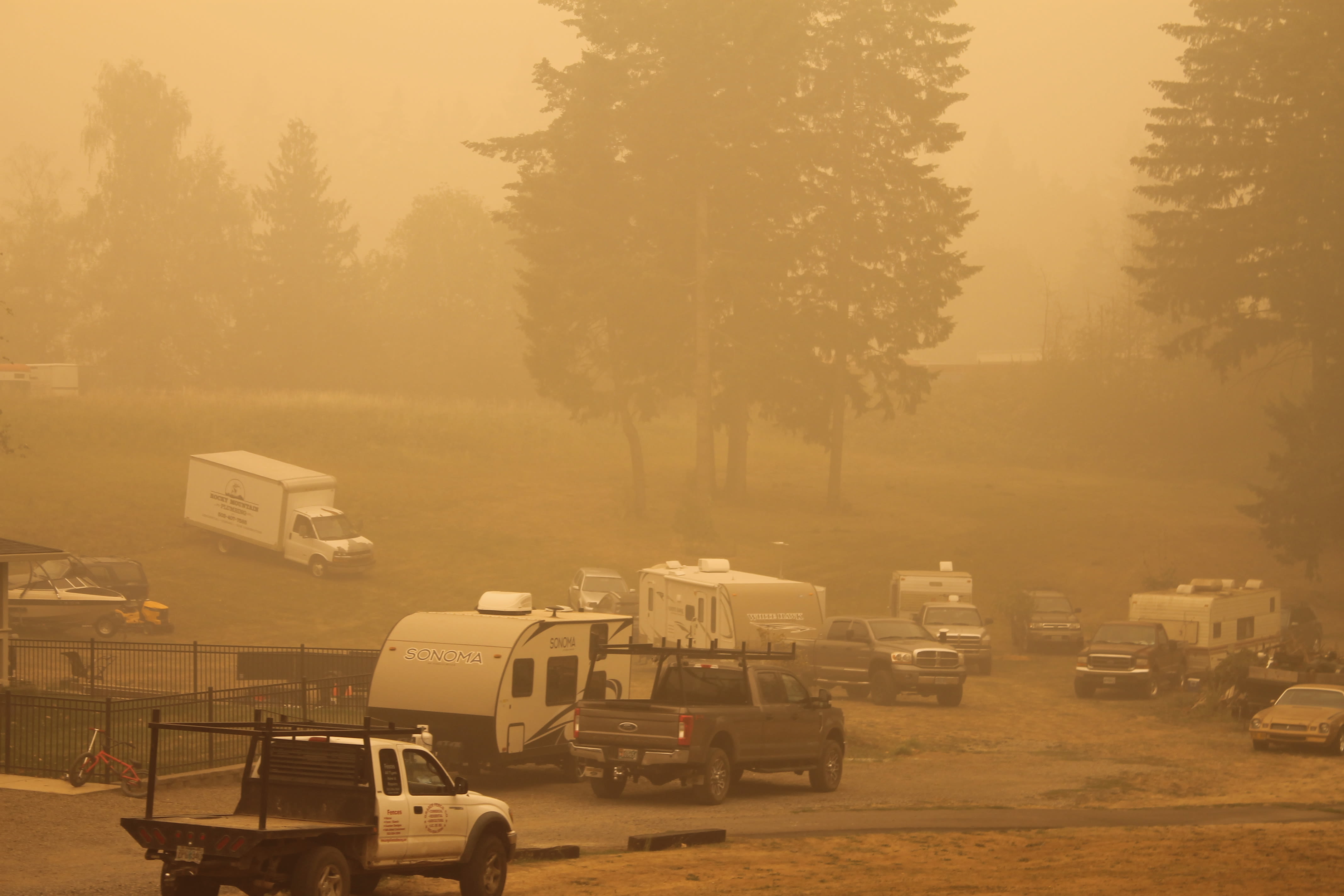Thinking About Leaving Portland to Escape The Smoke? You’re Not Alone

Smoky air over Portland has driven some residents to seek clearer skies out of town.
Image: Gabriel Granillo
We’re number one—and while that’s ordinarily something to celebrate, Portland’s perch atop the rankings of the global cities with the worst air quality has left some residents desperate to leave town.
The government hasn’t ordered wildfire evacuations for residents living in Multnomah County, but some individuals are nevertheless escaping the smoke seeping in from nearby fires, particularly the blazes in Clackamas and Marion Counties, including the Riverside and Beachie Creek Fires.
Rachael Hofmann lives with her family in Southeast Portland. With no air conditioning, her home had little hope of filtration from the smoke. “On Friday during the day, I said we need to get out of here. Our house was built in 1914 and has most of the original windows and no insulation in the walls,” she says.
They first considered booking an Airbnb in Bozeman, Montana, but figured that the 12-hour drive would be stressful with two adults, two kids, and a large dog. “We’re also in the middle of a pandemic. We didn’t want to risk exposure,” Hofmann says.
So, they went to a friend’s beach house near Tillamook instead. “It’s a newer house, and it’s a much closer and cheaper option,” she says.
Despite the increasing wildfire smoke, Oregon Gov. Kate Brown encouraged Portland residents to stay put at a recent press briefing.
“If people are safe and not under any level of evacuation, we’re asking that they stay where they are and that they remain in contact with local emergency management officials,” she said.
By staying home, Brown says, residents can keep roads and hotels open for evacuees who don’t have a home to return to right now, and for fire crews who need to be able to get to their destinations. Traveling also increases the spread of and exposure to COVID-19—Oregon’s COVID numbers have been trending down in recent weeks, and it's not yet clear how the fires will affect case levels.
But “staying safe” can be ambiguous when wildfire smoke causes significant mental and physical distress.
Frances Almutawa lives in a tiny home in Southeast Portland. She escaped the city Friday night and stayed with her aunt in Pendleton over the weekend. “I didn’t necessarily leave for the smoke. But in my experience with fires, a lot can happen overnight. Portland is a big city, and I didn’t want to be leaving at the same time as everyone else,” Almutawa says.
“The smoke ended up being worse in Pendleton, so I didn’t really make the best decision in terms of air quality, but the house had better air filtering.”
Those who have been lucky enough to flee the wildfire smoke say they are still thinking about others during this unprecedented time of tragedy.
“There’s no supply of N95 masks and the unsheltered folks are still outside,” Almutawa says. “I’m not feeling great about the situation.”
After two days away from the city, Hofmann invited her neighbors to join her family out near the beach. The kids are doing virtual school together while the parents work from home.
“I feel lucky and privileged that we can do this,” Hofmann says. “I don’t feel bad we got out of the smoke, but I wish I was there to do some volunteer stuff helping people who really need it.”
Learn more about the effects of smoke inhalation from the West Coast wildfires in this episode of Footnotes.




